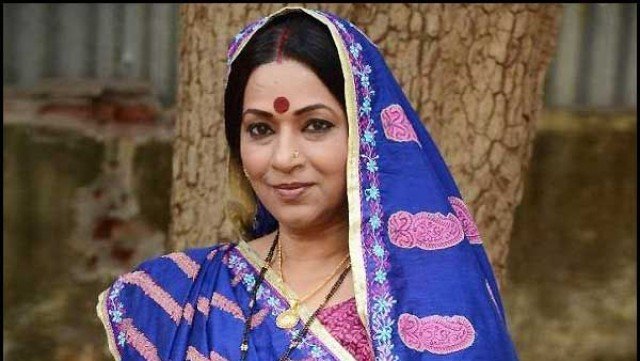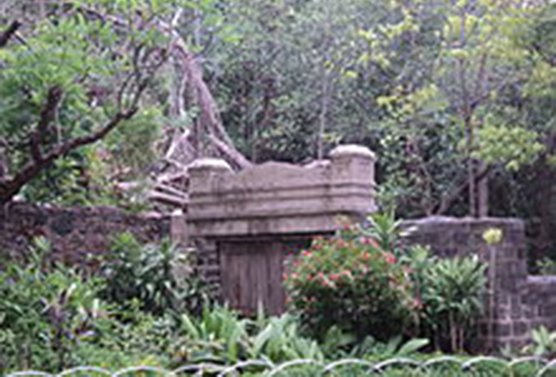Hema Singh: Up and close with the queen of Parsi theatre
The recipient of the prestigious Sangeet Natak Akademi Award for Acting (2017), Hema Singh is a renowned actor and Associate Professor at the National School of Drama
Her loud baritone and chaste Hindustani dialect, with a dash of powerful theatrical voice modulation match perfectly with her strong physical appearance on the stage as well as the silver screen. As an actor, she is as comfortable in a Parsi play like Mashiriqui Hoor,directed by BM Shah, as in an intense character in Din Ke Andhere, adapted from the Spanish tragedy The House of Bernarda Alba of Federico Garcia Lorca, and directed by legendary Ebrahim Alkazi.
And today, she is popularly known for her portrayal of Imarti Devi aka Imarti Shrivastava, the lead character she played in the popular TV serial Kairi—Rishta Khatta Meetha (2012) that won her the Best Actress Award in a Negative Role at ITA (2012) and also as a comic and manipulative politician in the movie Kaun Kitne Paani Mein (2017). Her diverse and challenging character of a warden in the film Beyond The Clouds (2017) and then as Daljeet Kapoor in the movie Run Bhoomi Champs Don’t Cry (2015) are still much-talked about roles she played with a great ease and elan. The recipient of the prestigious Sangeet Natak Akademi Award for Acting (2017), Hema Singh is a renowned actor and Associate Professor of acting (voice) at India’s premier National School of Drama.
Many critics and theatre lovers feel that this much-coveted SNA Award came to her too late as her huge body of work as an actor, researcher, teacher and director itself speaks volumes. Anyways, it’s better late than never! And she is all happy about the highest national award in the field of acting that surely re-affirms her long struggle in the field, her craft, perseverance and experimentation.
Hailing from a highly literary and cultured family, daughter of the illustrious poet-journalist Raghuvir Sahay, Hema learnt music from her mother, who was a professionally trained musician herself and honed her skills in the company of her talented sisters Nandini and Manjari Joshi, a reputed television news reporter and announcer. “I was a naughty kid. I loved to play robust games and climb trees and boundary walls and jump from heights. I used to gather the children from my society and stage skits. I always wanted to be an actor. But when I was young everyone in the family kept wondering about what I will become,” she says recalling those days of confusion and restlessness.
She graduated from the NSD and, even after that, her restlessness kept her company for her to aim for higher creativity. Six years ago, this ‘restlessness’ forced her to go on a two-year sabbatical break from her teacher’s job from the NSD “to know more about the real television industry” when Kairi—Rishta Khatta Meetha (2012) beckoned her. After graduating from the NSD, she trained under Nadira Zaheer Babbar and became a freelance actor for quite some years and then applied to NSD for a professorship and got selected. “I have been teaching theatre here for the past 15 years,” she said.
On being asked about the various mediums of communication she has ventured into in the course of her career and her preferences, she said, “It’s always theatre that gives me a sense of fulfilment as an actor and director. I have navigated television, radio and cinema and tested great success but here too only ‘theatre’ and its training helped me out.”
“Theatre is one of the earliest and most powerful forms of communication and nothing gives an actor more happiness than performing on stage in front of an audience that appreciates art. Theatre is a great equaliser and unites people of multiple cultures and traditions,” she adds. Her research and expertise is on Parsi theatre. In the world’s largest theatre fest—Theatre Olympics—this year, she directed “Khoobsurat Bala.” Besides, acting and directing, Hema Singh has been reciting poetry, writing scripts for the radio and translating some plays of great prominence. Her translation of Strindburg’s “A Dream Play” in Hindi titled “Swapnrang”, published by Central Academy of Literature, is considered as a work of extremely high quality. Her five Parsi directorial enterprises – “Yahudi ki Ladki” (1997, 2007), “Mashiriqui Hoor” (1998), “Khoobsurat Bala” (1999,2018), “Rustam Sohrab” (2008) and “Veer Abhimanyu” (2010) – are considered as masterpieces of modern Indian theatre.
Speaking on the state of the contemporary theatre, Hema Singh laments, saying that our theatre has become too much ‘urbanised’ today. “It must break free from its redundancy and spread towards our roots, learning from the traditions of Nautanki, Jatra, Swang, Nakkal, Parsi theatre, etc. Innovative script writing, stagecraft, set designing, voice and body modulations—should be taught at acting schools today and these skills should be implemented in theatre practices to make the contemporary theatre more engaging and entertaining,” she said. While listening to her emphasising on the need to focus on voice modulation, I instantly went back to her stage rendition of Agha Hashr Kashmiri’s lines in her unimitable booming voice, “Har taraf khoon, dahshat, khala hai; Mera ghar na hua quarbala hai.”





